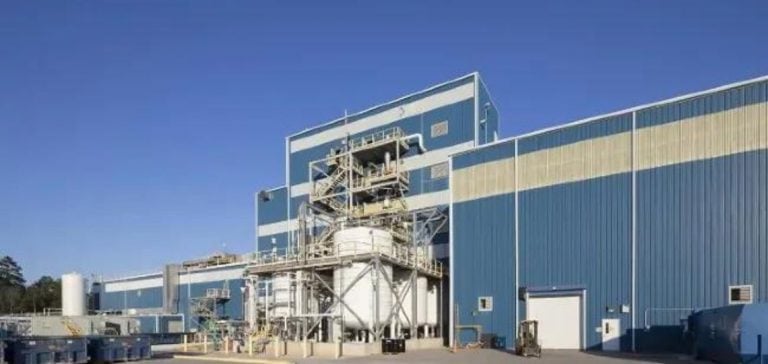The US government is investing heavily in the development of domestic battery production. The Department of Energy (DOE) has announced a $3 billion package to fund 25 projects in 14 states.
The initiative aims to boost domestic battery production, increase recycling capacity and support the supply of critical materials, particularly those essential to lithium-ion battery production.
The aim is clear: to reduce the United States’ dependence on China, now the world leader in these strategic segments.
The US administration has introduced tax and regulatory incentives to encourage the localization of production of electric vehicles (EVs) and their key components.
The funding announced is part of this broader strategy, which aims to secure the supply of critical resources, while developing jobs on home soil.
This measure goes hand in hand with a commitment to developing advanced technologies, from solid-state batteries to new electrolytes.
Strengthening local production and diversifying sources of supply
The DOE investment is specifically targeted at the production of critical materials, notably those used in the manufacture of next-generation batteries.
Albemarle, for example, will receive $67 million for a project in North Carolina to produce anodes for lithium-ion batteries.
At the same time, Honeywell will receive $126.6 million to build a plant in Louisiana dedicated to the production of electrolyte salt, essential for these batteries.
The aim of this initiative is to encourage American self-sufficiency in critical components.
Until now, much of the production waste and materials needed to manufacture batteries have been exported, often to China for processing.
The US government now intends to reverse this trend by developing its own processing capacities.
Development of new technologies for optimized production
A significant proportion of the funding is earmarked for technological innovation.
For example, the DOE plans to allocate $225 million to SWA Lithium, a joint venture between Standard Lithium and Equinor, for direct lithium extraction (DLE).
This technology, which produces lithium from brines, is seen as a solution for reducing dependence on traditional sources of lithium, notably from China.
At the same time, Revex Technologies is about to receive $145 million to develop three sites in Michigan, aimed at converting mining waste into nickel.
This initiative is designed to produce enough nickel to power the manufacture of 462,000 electric vehicle batteries a year, while reducing imports of critical metals.
Support for recycling infrastructures
Recycling materials is also at the heart of this strategy.
Battery production waste is a valuable resource which, until now, has been largely under-exploited in the USA.
To remedy this situation, the DOE plans to support projects such as Clarios Circular Solutions, which, in partnership with SK ON and Cosmo Chemical, will receive $150 million to recycle lithium-ion battery production waste.
This type of investment not only reduces dependence on imported materials, but also creates a circular ecosystem, where resources are reused to maximize the efficiency of production chains.
Towards a reduction in geopolitical dependencies
The USA is seeking to reduce its dependence on third countries, particularly China, in the battery supply chain.
Currently, over 96% of manganese sulfate, essential for electric vehicle batteries, is produced in China.
To diversify supply sources, the DOE has awarded $166 million to South32 Hermosa to mine manganese in Arizona, and $166.1 million to Element 25 to produce the same material in Louisiana from Australian ores.
These investments reflect a strategic desire to secure the critical resources needed for the United States’ energy transition, while reducing the risks associated with geopolitical tensions.
Structuring investments for the future of energy
The expansion of domestic battery production is also accompanied by the development of new technologies, particularly in the field of silicon batteries.
Group14 Technologies, for example, will receive $200 million to build a plant to produce silane, an essential material for silicon batteries, currently produced mainly in China.
In this way, the US government is seeking to encourage innovation in the industry, while strengthening the security of supply of critical materials.
This strategy is designed to position the United States as a world leader in the production of new-generation batteries, while promoting domestic industrialization.






















